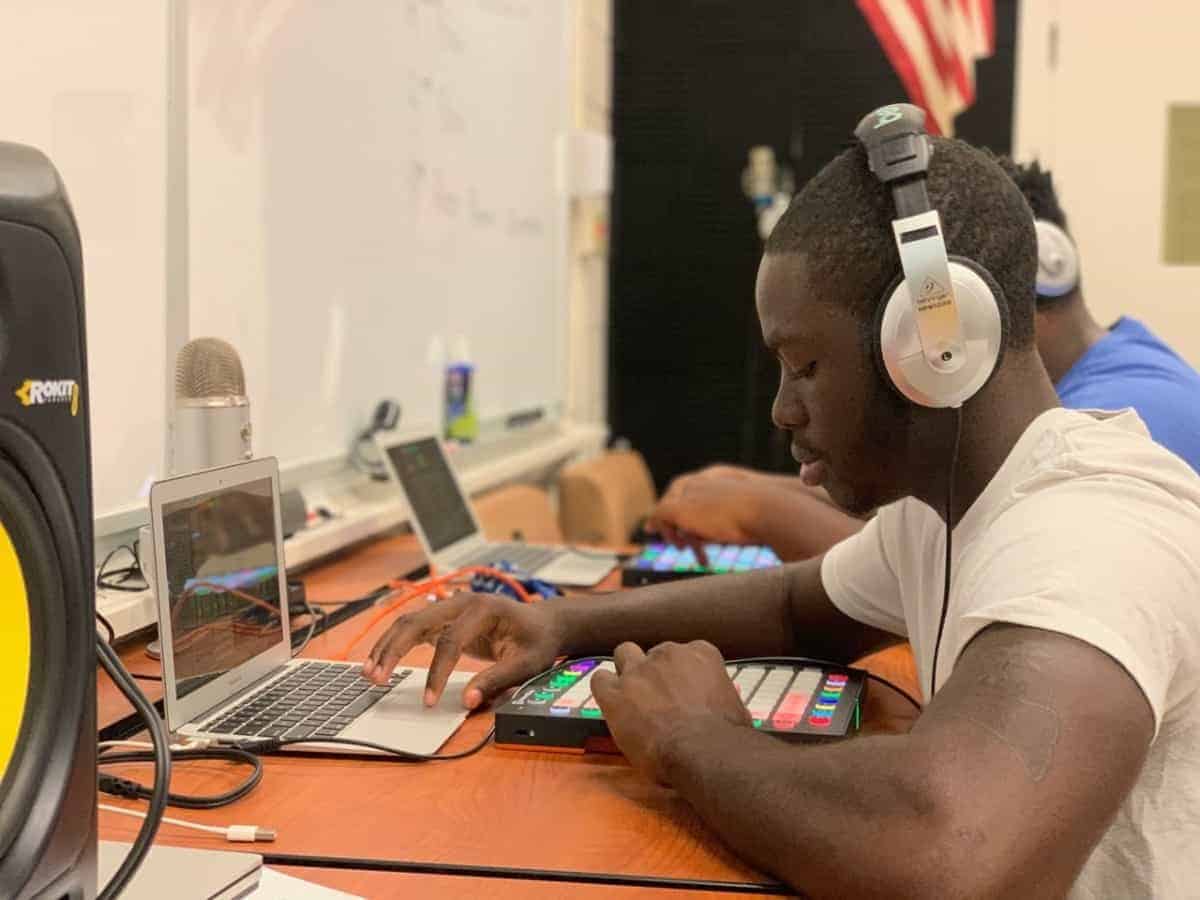

By the year 2040, 70% of all jobs will require some level of competency in computer science, according to a recent Department of Public Instruction (DPI) presentation to state lawmakers.
Yet, computer science only counts as an elective in the state’s K-12 system. Jamey Falkenbury, director of government affairs for state Superintendent Catherine Truitt, says that creates a disincentive; students are more concerned with taking classes that meet the minimum requirements of the UNC System, rather than electives.
“The biggest rub … is students are not going to take something if it does’t count towards their future plans,” he said.
The State Board of Education wants that to change, Falkenbury said, but they won’t move until the UNC System agrees. That’s because the UNC System sets the minimum requirements — courses that must be taken by a student before a UNC System school will consider admitting them.
This topic was a focus of a presentation Falkenbury made to a legislative study committee which started meeting after the end of the most recent short session of the General Assembly. Its goal is to get more women into STEM (Science, Technology, Engineering, and Math) fields. Rep. Erin Paré, R-Wake, chairs the committee, and says its mission is critical.
“The whole point of the Advancing Women in STEM Committee is to strengthen the workforce pipeline going into a lot of these STEM jobs that we need,” she said in an interview, adding: “It just is good for our state to be able to encourage more people to have an interest in those type of employment fields.”
The committee has met twice so far and heard from companies like SAS and Accelerate Success, as well as groups such as Triangle Women in STEM and the NC Biosciences Organization. At its Sept. 7 meeting, it heard from DPI, the UNC System, NC Community Colleges, and a representative for independent colleges and universities.
And while the committee’s name specifically mentions women, Paré said it’s really about increasing STEM participation across a variety of underrepresented groups.
The group hasn’t started discussing what exactly it’s going to do or recommend going forward, but Paré said that the computer science component seems ripe for action.
“The computer science credit seems to be a key missing piece,” she said. “If you look to other states that have adopted this, it has done great things for their STEM workforce pipeline issues.”
Generally, study committees suggest draft legislation for the full General Assembly to consider during its next session, but Paré said she wasn’t planning a legislative proposal on computer science right now. Making computer science eligible as a math or science (as opposed to an elective) is something that the State Board of Education and UNC System can do together without intervention from lawmakers.
“I think that we need to start with just engaging the UNC System and just see where they are and just have more discussions,” she said.
During the recent committee meeting, Paré had the opportunity to ask David English, vice president for academic affairs for the UNC System, where the system stood on the issue.
“We’ve asked the Department of Public Instruction to provide all courses to us that they feel are not currently receiving full consideration as part of the minimum course requirements,” English told her, adding later: “Computer science is definitely first and foremost of what we’re looking at.”
In a follow-up interview, English said that the computer science question is part of a larger review of all the minimum standards in the UNC-System which was recently convened. He said that review is expected to wrap up by the end of the semester, at which point recommendations will go on to the UNC System Board of Governors. However, he said the computer science portion of the review will likely be complete within the month. While that will still need to go to the Board of Governors, along with recommendations on the rest of the standards, he said K-12 and legislative leaders should get an idea sooner on how the UNC System is leaning on computer science.
The reason this isn’t just a quick fix is because of the need to ensure that high school computer science courses are as rigorous mathematically as one of the math courses that counts towards a minimum standard, according to English. He said that computer science majors in the UNC System require a lot of math, and if the computer science courses in high school don’t give incoming freshman the preparation they need, the students may be at a disadvantage in college.
“What we don’t want to do is, in the interest of wanting to expose more students to computer science …. is to essentially take them out of a fourth level mathematics course,” he said. “We’re just trying to be really thorough and make sure that we don’t fix one issue and then create a whole other one on the back end.”


English said an official request to consider two computer science courses as math courses came in early this week from K-12 leaders.
In an interview, Falkenbury said this topic was one of the first that he and Truitt talked about after she started in her new role in 2021. It’s also one of the reasons that she created a computer science division at DPI. Falkenbury said that as far back as 2019, a subcommittee of the State Board of Education had been talking to people in the UNC System about making this change. And Truitt and her team have been asking for this for over a year.
Truitt said in an emailed statement that the time has come to make this change.
“At a time when we have more than 50,000 unfilled IT and Computer Science based jobs available in our state, with an average salary above $90k, we need to ensure our focus is on pathways that prepare students for careers today and in the future,” she wrote. “It is long overdue for North Carolina’s education system to join the vast majority of other states in allowing Computer Science to count for a defined math or science credit, rather than being considered an elective course.”
Falkenbury said that 44 other states already do this. Meanwhile, 60% of the people who go to college are women. And women who take a computer science course in high school are 10 times more likely to major in it in college. Hispanic and Black women are seven times more likely.
Making computer science count toward the UNC System’s minimum standards is important not just for the workforce, but also as an opportunity for groups of students that are sometimes overlooked in the public education system, he said.
“For us, this knocks down so many different barriers and allows you a pathway to a very high paying job,” he said. “It would be one thing if computer science were this new thing, but it’s been available to public schools across the nation for a good 10 years now.”




